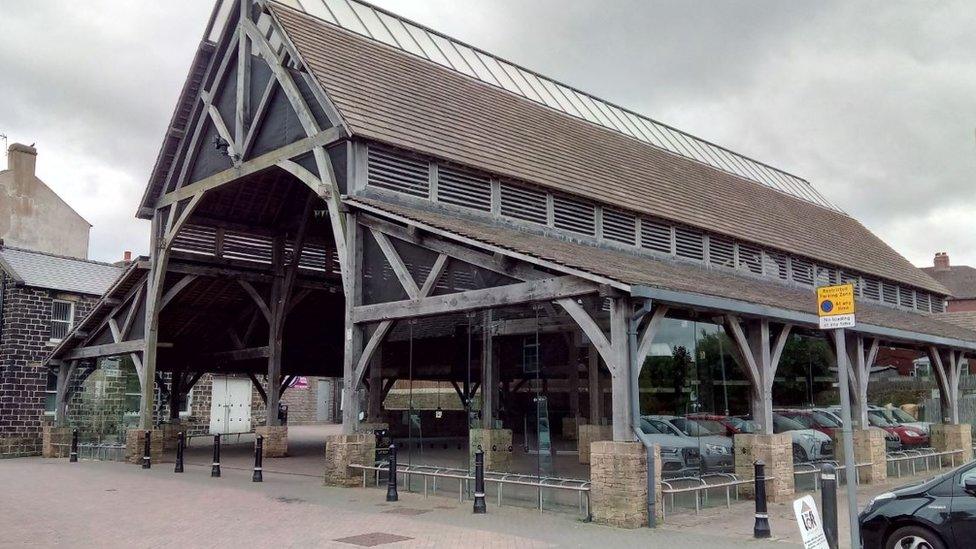Penistone loo vandals restorative justice plan rejected
- Published

The toilets in Penistone Market Barn have been vandalised several times since they were refurbished, councillors said
Councillors have rejected a restorative justice plan for vandals who damaged a public toilet and said police should "do their job properly".
South Yorkshire Police were called to Penistone's public toilet in the Market Barn on Shrewsbury Road on 3 December.
They found plastic fittings had been damaged and the toilet door was broken.
The offenders should have to do a litter-pick and pay £50 as "restorative justice" punishment, police said, but town councillors reacted angrily.
The Local Democracy Reporting Service said the public toilets had been unused for some time when Penistone town council embarked on a lengthy refurbishment programme several years ago.
Two people, 17 and 18, have admitted causing £50 of damage to plastic fittings in the toilets at 22:00 GMT on 3 December, but it is unclear whether they also damaged the toilet door, or if that happened another time.
Penistone councillors were angry that South Yorkshire Police wanted to close the matter through "restorative justice", which aims to be an alternative to conventional prosecution where a solution is found, acceptable for both the victim and the offender.
Some councillors have insisted the vandals also damaged the door and said it was not for the public to be left with the repair bill.
Councillor Steve Marsh said the door damage would cost hundreds of pounds in insurance excess.
"I suggest we go back to police and tell them to do their job properly and that we want to prosecute," he said.
Other councillors agreed and said the toilets had been vandalised several times since their refurbishment.
They are controlled by a coin-operated lock in the day and locked at night. A heavy steel door which formed part of the original plans was never installed.
A South Yorkshire Police spokesman said: "Young offenders are often referred to alternative programmes, including restorative justice after being reviewed by a panel, who take into consideration the offenders past history and the nature of the offence they have committed.
"These alternatives to criminal justice prosecution are used to ensure young offenders have an opportunity to redeem themselves, consider their actions and discourage them from committing further harm."

Follow BBC Yorkshire on Facebook, external, Twitter, external and Instagram, external. Send your story ideas to yorkslincs.news@bbc.co.uk, external.